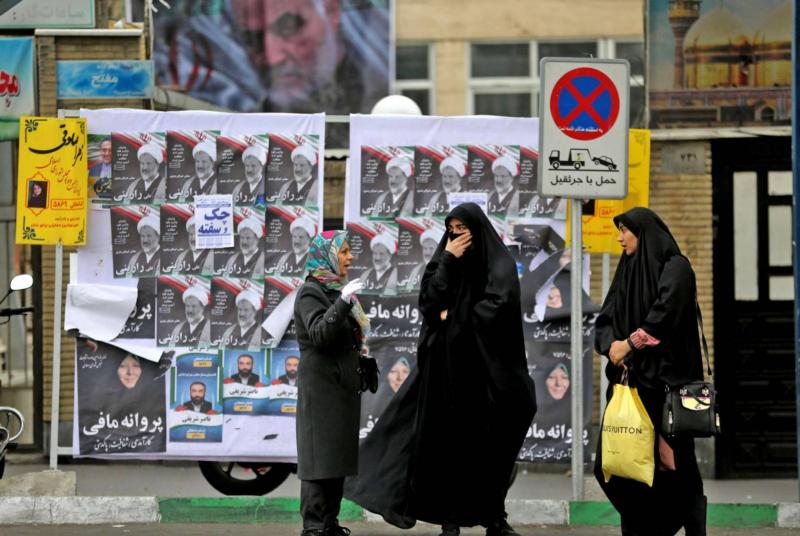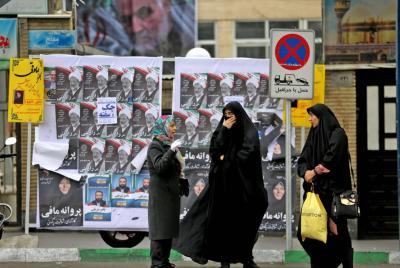Recalling the meeting of Hezbollah Secretary-General Hassan Nasrallah with the commander of the Quds Force, Esmail Qaaani, last April, where the latter informed him of the Supreme Leader's directives not to respond to Israeli escalation, no matter how severe, and that Iran has no interest in a regional war that could be ignited by a Hezbollah response from the south. Sources close to the leadership of the Shiite duo reported that Nasrallah accepted the Supreme Leader's directives despite differing opinions, explaining that his credibility with Lebanese people, particularly his supportive base and allies in the Arab world, was at stake after the promise to retaliate against Haifa and beyond. Additionally, the justification for bearing arms, which was always that it acts as a deterrent to Israel, had vanished.
Qaaani stated that this does not concern the Islamic Republic, but is rather Nasrallah's matter to manage with his people, warning that Iran would remain unharmed from any military escalation in southern Lebanon. Nasrallah protested against the tone of the Quds Force commander's speech, underlining the tension in the meeting, after which the Secretary-General remained silent and refrained from his usual public appearances for more than two months. Many wondered about the reasons for his absence, with some speculating that he was suffering from health issues, a claim that was not true.
Qaaani's visit was followed by two visits from Iran's late Foreign Minister Hossein Amir-Abdollahian to Beirut, where he met with Nasrallah at the Supreme Leader's request to ease tensions and align perspectives with Iran. This effort was successful, leading Nasrallah to return to public life and repeat calls for strategic patience and insight, justifying Hezbollah's lack of promised retaliation for the brutal Israeli strikes on southern Lebanon, which had devastated entire villages with phosphorous bombs, killed hundreds of operational leaders of the party, and displaced tens of thousands of residents northward.
As questions about Iran's intentions in Lebanon intensified, it became clear that the country is merely a mailbox for the Islamic Republic to achieve its own objectives, without concern for Lebanon and its people. Just as Iran secured the release of several billion dollars in frozen Western bank accounts in exchange for agreeing to maritime border demarcation, they now attempt to leverage Hezbollah's inaction and the resultant regional turmoil as negotiating chips with the United States, indifferent to the devastation caused in Lebanon by phosphorous bombs, and the suffering faced by its people.
With the departure of President Ebrahim Raisi and Foreign Minister Abdollahian, Iran's policy towards Lebanon will not change; Abdollahian would suddenly arrive in Lebanon, leading to a flurry of meetings. Strangely, it has never happened that a Lebanese official contracted COVID-19 while Abdollahian sought to meet him, as if Iran does not consider Lebanon an independent, sovereign state. This challenge continued with the acting Foreign Minister Ali Bagheri Kani, whose first visit to Lebanon was aimed at informing the Lebanese, before they woke from their slumber, that no matter what, the relationship between Iran and Lebanon remains paramount.
Thus, Lebanon will remain a battlefield for exhaustion, dictated by both Iranian and Israeli decisions, while also maintaining the required restraint from both sides. We observed that even Iran's response to Israel's attack on the embassy in Damascus was just a feeble attempt to create an illusion, resulting in no casualties among the Israelis and without damaging facilities or infrastructure. Meanwhile, the cries of Iranian affiliates echoed, celebrating false victories and missiles, with the situation stopping there, while we mourn the victims at the consulate in Damascus. Tehran will seek compensation from the United States to resolve the consulate issue with minimal damage to Israel.
Moreover, despite its support for the resistance axis, adoption of Hamas, and ensuring Ismail Haniyeh a front-row seat at a major funeral, no Iranian official has ever threatened revenge for the thousands of Gazans lost. Yet last week, a senior Iranian official threatened to strike Israel as revenge for the killing of military adviser Saeed Abyar in an Israeli strike on northern Aleppo.
Such has been the Islamic Republic since its inception, relying on duplicity and political Machiavellianism, arming the Houthis to close off shipping routes, and establishing Hezbollah in Lebanon to expand Iranian influence in Lebanon and Syria. Even the Quds Force has not acted to liberate cities as much as to broaden Iranian dominance regionally, unless one believes that Iranian influence wherever it emerges has brought good, progress, and prosperity to the peoples. Therefore, no matter who is chosen to be the next president of the Islamic Republic, it will not change the repressive behavior of the regime either domestically or internationally. Any "moderate" will remain bound by the constraints of leadership and a system that appears irreparable. We should await military actions and proxy arming when they eventually turn against Iran from within.




